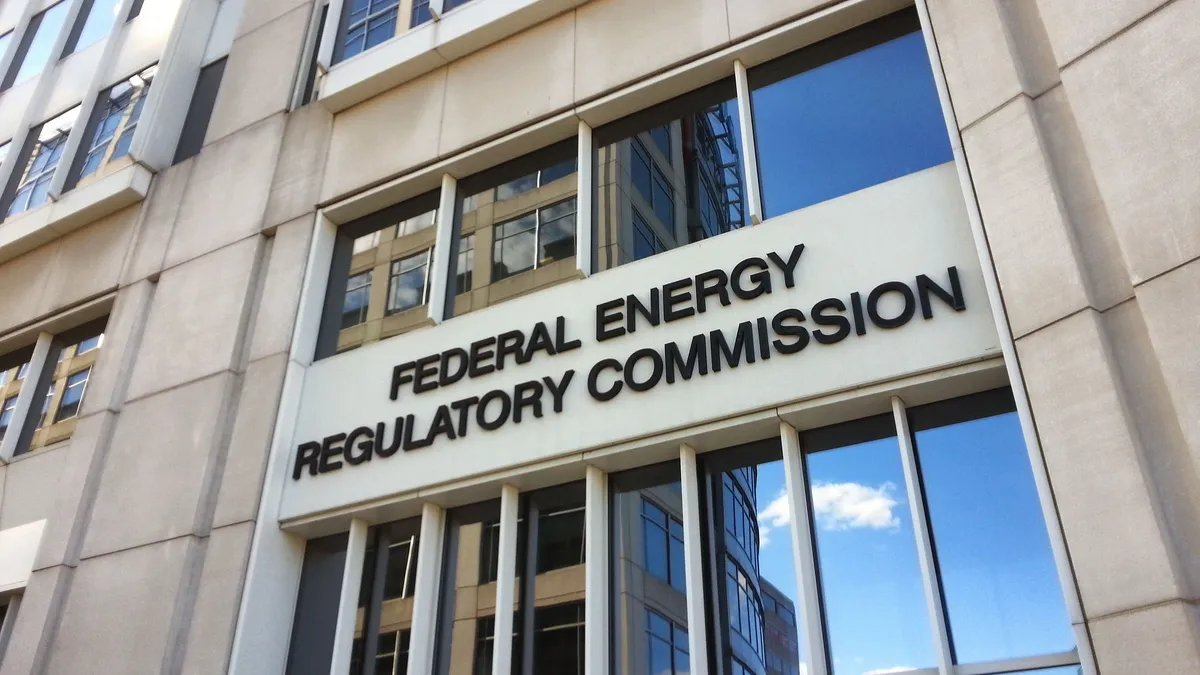Dive Brief:
-
Recent comments filed by environmental organizations and state utility regulators highlight the divergent perspectives over how the Federal Energy Regulatory Commission (FERC) should reform its implementation of the Public Utility Regulatory Policies Act (PURPA), a 1978 law that compels utilities to purchase power from small renewable generators.
-
PURPA has outlived its usefulness because utilities have ample access to renewable resources outside the law, the National Association of Regulatory Utility Commissioners (NARUC) wrote. FERC should create a "yardstick" that would allow utilities — even those not in wholesale power markets — to prove they should be exempt from PURPA's requirements.
-
Eight renewable energy and environmental groups argued PURPA is still essential to the growth of wind and solar, particularly in Midwestern and Southeast states that are not part of wholesale power markets. The comments come as utilities push FERC to move forward on its long-dormant review of PURPA.
Dive Insight:
Newly filed comments in FERC's PURPA review docket could help shape how the commission reforms its implementation of the 1970s law, the first to open up power generation to competition.
PURPA was meant to reduce oil dependence and increase electric reliability by forcing utilities to buy renewable electricity from independent providers at or below their avoided cost for other generation.
In 2005, Congress amended PURPA as part of the Energy Policy Act to account for the growth of wholesale power markets, reasoning that utilities that procure at least some of their generation through those markets could be exempt from PURPA's mandatory purchase requirements.
The NARUC proposal would go further, requesting that FERC create a guide for utilities not in wholesale markets to win exemption if they hold competitive solicitations for new resources that do not disadvantage PURPA resources.
"These competitive solicitations, or request for proposals (RFPs), would be open to all [PURPA qualifying facilities] and would be overseen by state commissions or administered independently of any individual market participant to mitigate anti-competitive behavior of the buyer," NARUC wrote in its proposal.
Though not codified explicitly in FERC regulations, energy lawyers like Ari Peskoe, director of the Electricity Law Program at Harvard, say there's nothing stopping utilities from applying from such an exemption from PURPA today.
I don't think FERC's current regs prevent a utility from applying to FERC for an exemption using the argument outlined in this paper. Which utility wants to test out NARUC's idea?
— Ari Peskoe (@AriPeskoe) October 11, 2018
Renewable energy providers and environmentalists, however, say PURPA remains critical to renewable energy growth in a few regions around the U.S.
Many states not in wholesale power markets have not implemented PURPA properly, they argue, allowing utilities to create contract terms that make project development impossible.
"In the Southeast, Alabama Power Company offers qualifying facilities contracts in which avoided cost rates are updated annually; Virginia Electric and Power Company offers qualifying facilities short-term market-based rates; and the Tennessee Valley Authority offers qualifying facilities contracts in which avoided cost rates are updated monthly," the environmental groups wrote.
As a result, the groups say, regions like the Southeast have very little PURPA activity, even as utilities make customer-financed investments in risky generators like the Vogtle and Summer nuclear plants.
The organizations, including the Southern Environmental Law Center, the Environmental Law and Policy Center, Vote Solar, The Sierra Club and others, said FERC should focus its PURPA review on states with little PURPA development to ensure they are implementing the law properly.
The comments come as the utility sector pushes FERC to move on the lengthy policy review. In a separate proceeding, a Montana developer is trying to secure PURPA status for four wind facilities paired with batteries, and the Edison Electric Institute, a utility trade group, asked FERC to complete the broad policy review before ruling on that case.
FERC Chair Kevin McIntyre said in May that the commission would "reenergize" its PURPA review, but the commission has not set deadlines for its conclusion. Late last month, Commissioner Neil Chatterjee told Utility Dive the proceeding is still in its early stages.
"The way the commission processes work is staff puts together an options memo that lays out what the available options are and we're just waiting on that memo," Chatterjee said. "On what form it will take or what timeline it will take, we don't have any clarity on that yet."













